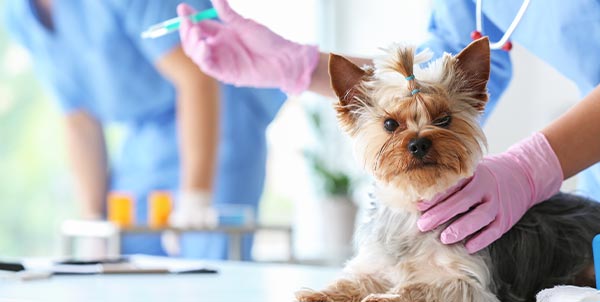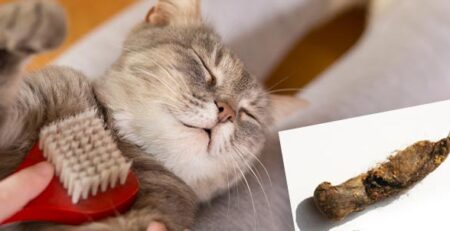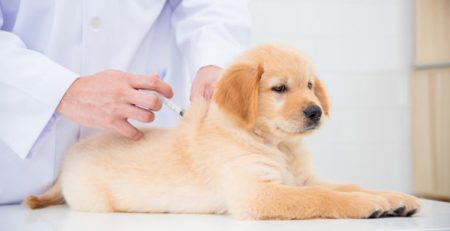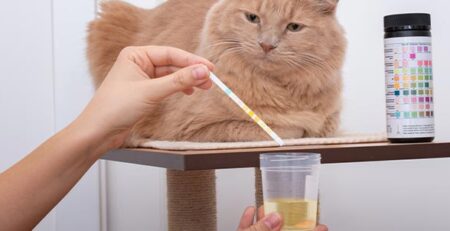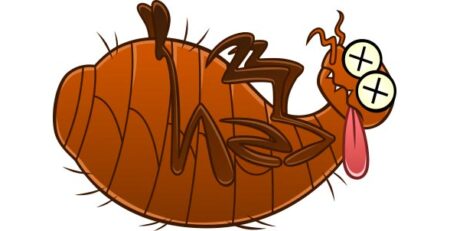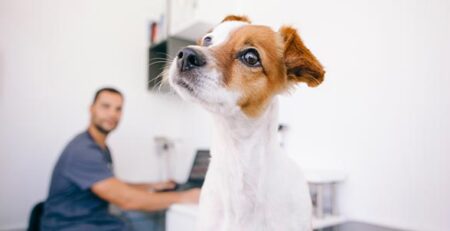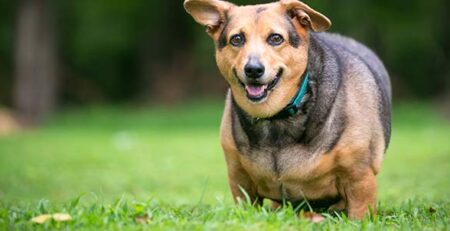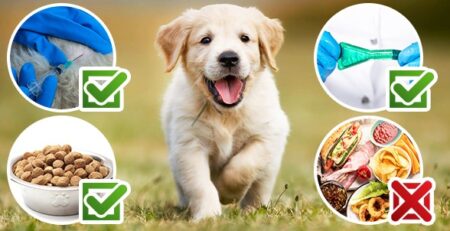Table of Contents
Canine parvovirosis: If your puppy suddenly vomits, has a high fever and hemorrhagic diarrhea, know that he or she is in danger of dying. To avoid contagion and death, vaccinate him at the right time to ensure proper and effective immunization.
Canine parvovirosis, better known as gastroenteritis, is a highly contagious viral disease that can lead your dog to death within days.
The use of effective vaccines has made it possible to reduce the impact of canine parvovirosis, and yet, to date, this terrible disease has still not been eradicated.
How is parvovirosis transmitted?
The disease is caused by a virus, canine parvovirus, which is excreted with the feces of infected dogs.
Transmission of the disease occurs when a healthy animal makes oral contact with infected feces or when it licks or ingests something that has been contaminated with the virus.
What are the places at risk of infection?
Parvovirus is particularly resistant and can survive for months at a time.
It can spread anywhere, either in the home environment, carried by infected animals and objects, or in the ‘outdoor environment.
The typical environment in which contagion occurs is just outside: the “incriminated” places are parks and walking areas frequented by dogs.
What is the incubation period of parvovirosis?
The incubation period between the time of infection and the appearance of the first symptoms is usually 3-7 days.
The virus first attacks the lymph nodes in the throat where it reproduces and then invades the bloodstream.
It attacks the spinal cord and attacks immune system cells.
What’s more, it passes over the walls of the intestine and attacks villi and microvilli, causing serious consequences for the body.
What are the symptoms of the disease?
The sick animal presents vomiting, hemorrhagic diarrhea, inappetence, depression, and high fever.
Diarrhea and vomiting quickly lead to a dehydrated condition that can have fatal consequences, especially in younger animals.
In the absence of timely therapeutic intervention, death can occur in a short time .
That’s why it’s vital that, at the appearance of the first symptoms, you rush immediately to the Veterinarian.
How is parvovirosis treated?
Once parvovirosis is diagnosed, it is critical to keep the dog hydrated.
Those most affected need fluids in the vein, and treatment also includes the administration of antibiotics, to fight bacterial infections, and anti-vomiting drugs and gastroprotectants.
What if there are other dogs in the house?
The virus is extremely contagious: if you have more than one dog in your home, immediately separate the sick ones from the healthy ones.
At the same time, it disinfects the environment and contaminated objects.
How is disinfection performed?
You can perform disinfection of washable surfaces using
bleach
diluted and water in a ratio of 1:30 (one part bleach to 30 parts water).
Leave the bleach mixture in contact with contaminated surfaces, floors and footwear for at least 10 minutes.
Throw away bedding, bowls, blankets and toys.
Premises where an infected dog has stayed should not accommodate other dogs for at least 6 months, especially puppies, for which there is little hope of survival if infected.
Do you know why the mortality rate for infected puppies is so high?
The newborn dog enjoys a certain period of protection due to antibodies from the mother’s body.
However, these are antibodies that diminish over time, leaving puppies vulnerable to a range of diseases, including viral gastroenteritis caused by parvovirus.
What can be done to prevent parvovirosis and prevent its spread?
Prevention against parvovirus exists, and it is the vaccine that should be inoculated to dogs from puppyhood.
The veterinarian arranges for vaccine prophylaxis to be initiated around 6 to 8 weeks of the puppy’s life, so as to minimize the chances of it contracting this and even other life-threatening infections.
Make sure with your veterinarian that your dog is up to date with the first vaccination and subsequent booster shots.
Remember, however, that parvovirosis should never be underestimated at any age and that adult dogs are not exempt from infection or, worse, death.
Should adult dogs also be vaccinated?
Although the mortality rate is around 30 percent in adult dogs, regular vaccination is also strongly recommended for them.
Always refer to your trusted veterinarian to determine the correct methods and timing to ensure optimal protection and proper immunization.
Has your dog, despite the vaccine, contracted the disease?
If immunization occurs correctly, the dog cannot contract the virus.
Be careful, though! There are high chances that the vaccine will not be effective and the dog will still get sick if:
– Has been stored in an unsuitable environment
– In case it was inoculated without having wormed the dog
– When it is injected by NON-MEDICAL personnel who do not follow official protocols
Since this is a very contagious and deadly disease, it is also your responsibility to vaccinate your dog and have it done ONLY AND EXCLUSIVELY by your trusted Veterinarian to make sure it is effective.
In case of infection but also as a good rule of civility and decorum, ALWAYS pick up the feces to prevent other healthy dogs from coming in contact with the virus.
At La Veterinaria Clinic, our Staff Doctors are always available for a complete check-up of your dog: contact us to check your puppy’s health status and to set up the vaccine prophylaxis plan.
La Veterinaria Clinic is always open h24 every day including holidays and with First Aid service.
For the joy of seeing them HAPPY.

